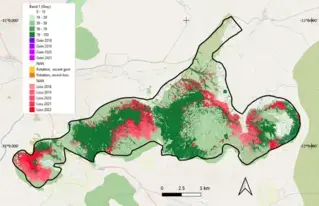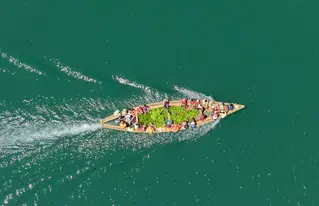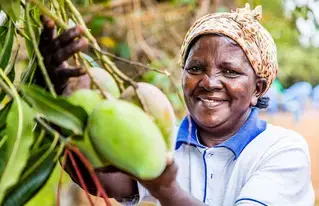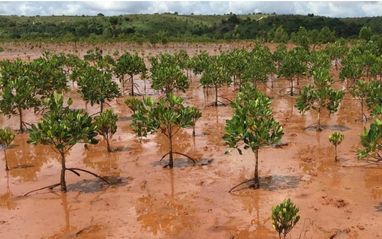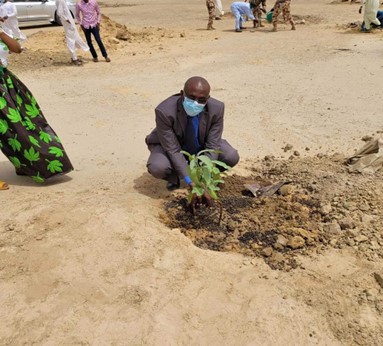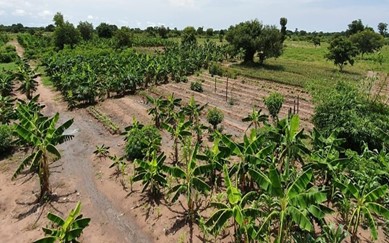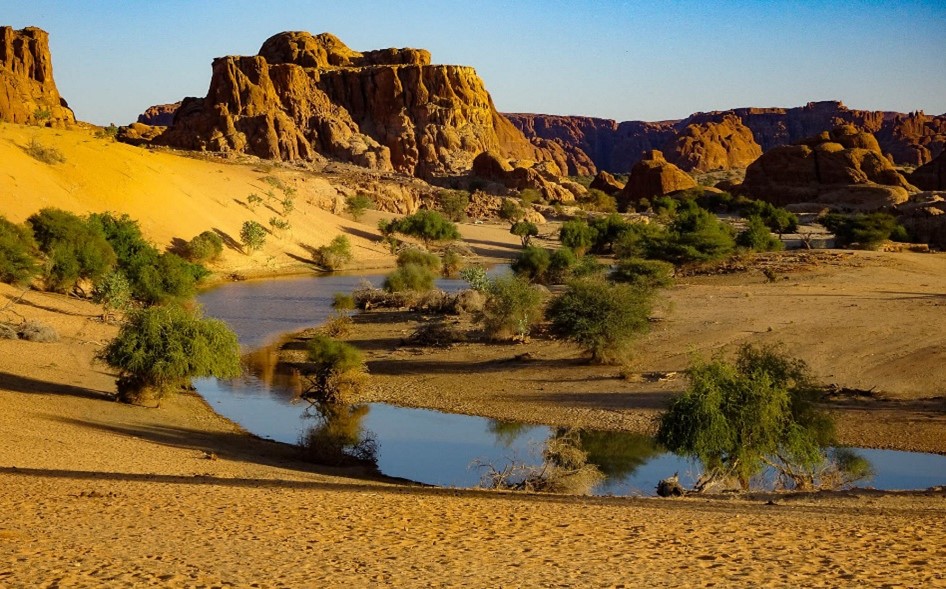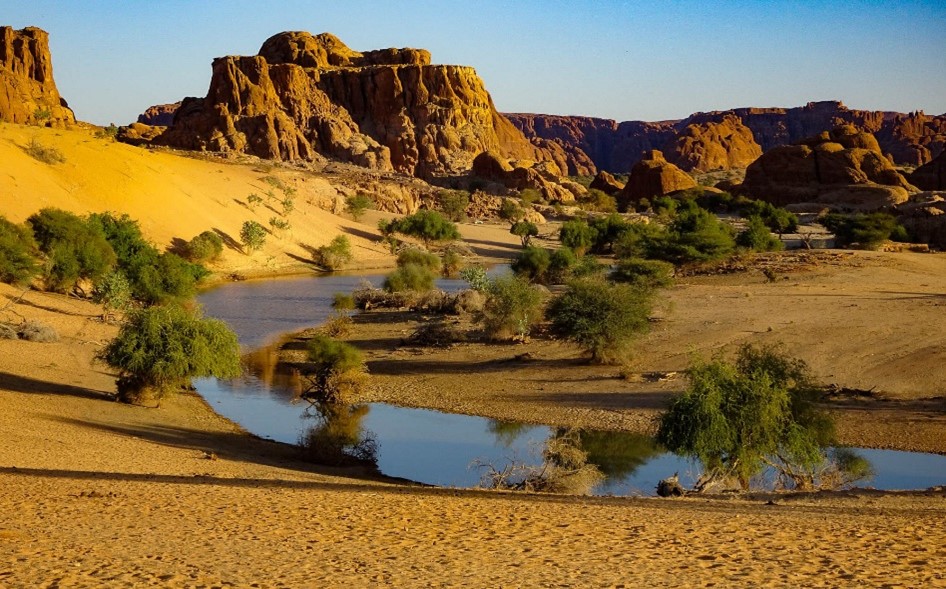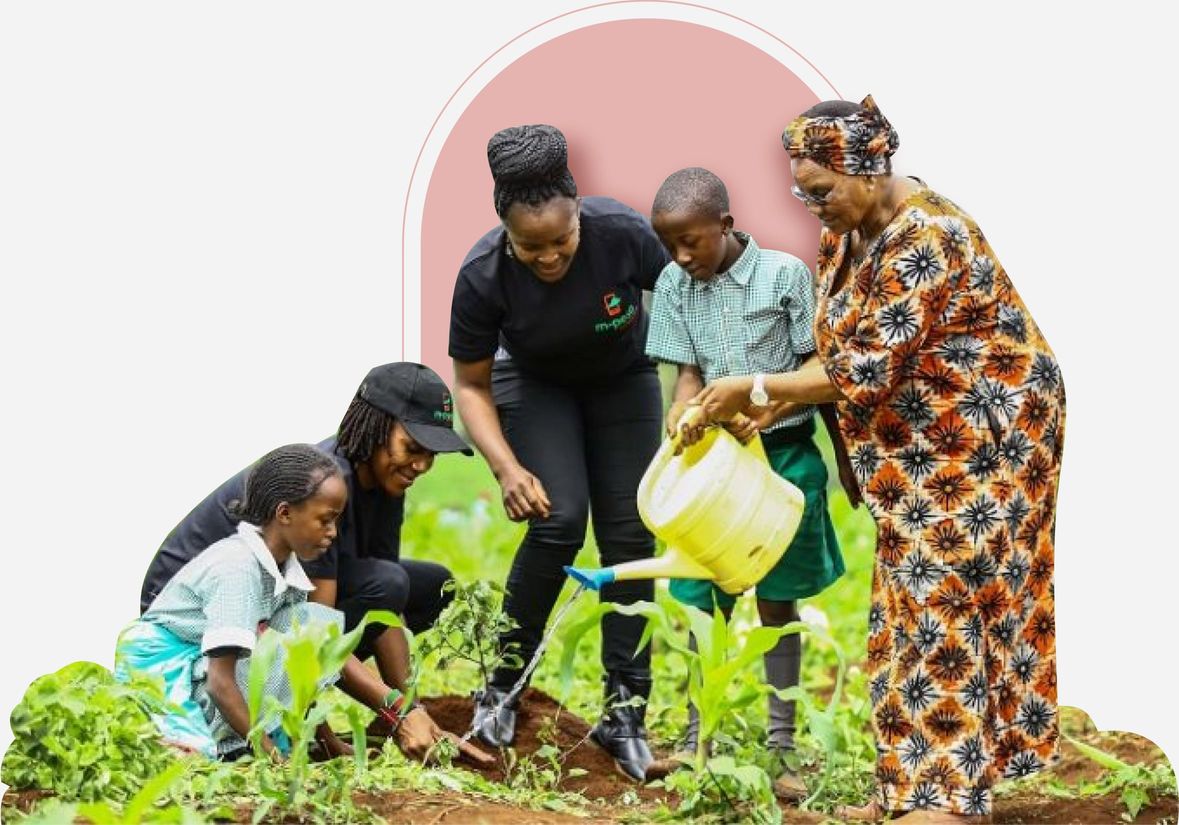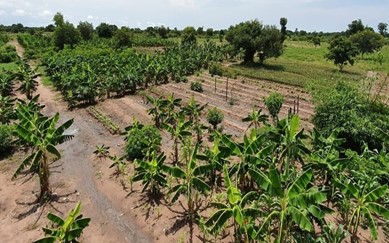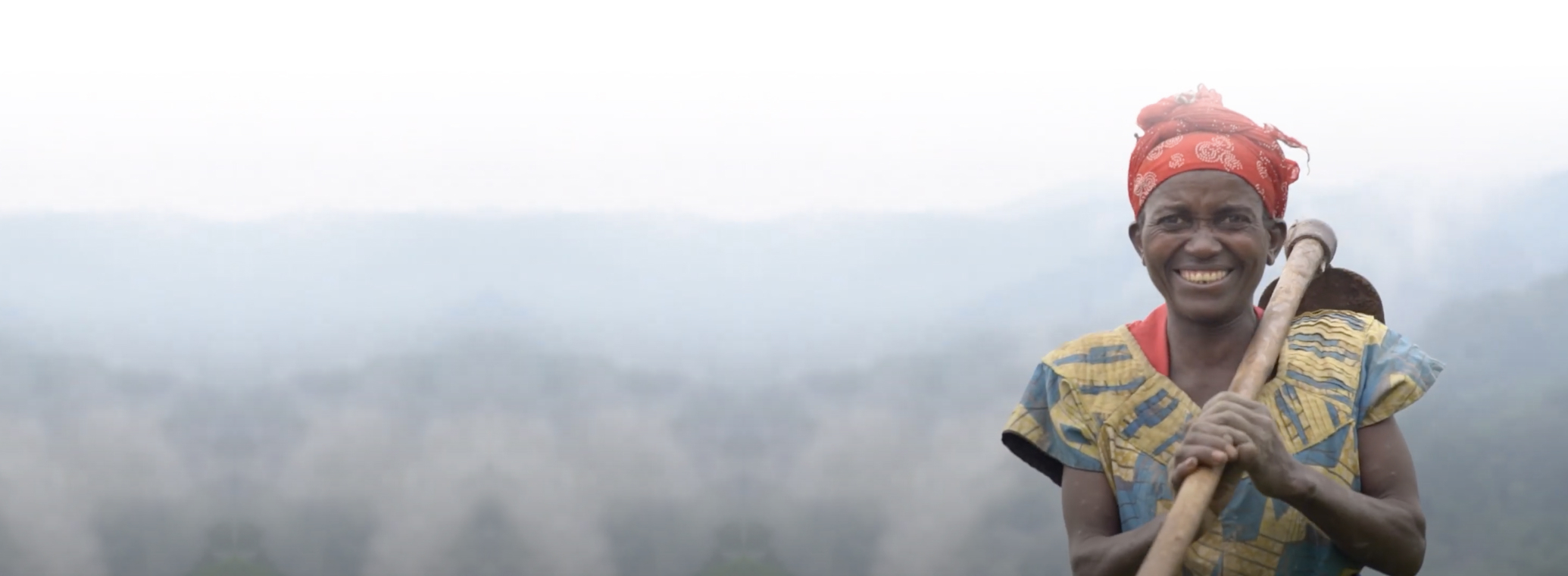Afforestation and Reforestation
"One tree for every Chadian". It is through this concept that the Ministry in charge of the Environment intends to plant millions of trees throughout the national territory to increase vegetation, store carbon in order to reconstitute the functions of degraded landscapes in the country. In Chad Trees break the monotony of the omnipresent sand and dust in this arid zone located at the gates of the Sahara. For every household, seeing the trees grow sweetens life. They are a reminder of the better times in the village, the children decorate them on holidays and they are signs of prosperity despite the destitution of the place. Finally, the trees planted will have taken root and will leave a positive trace of this difficult episode to the host population.

